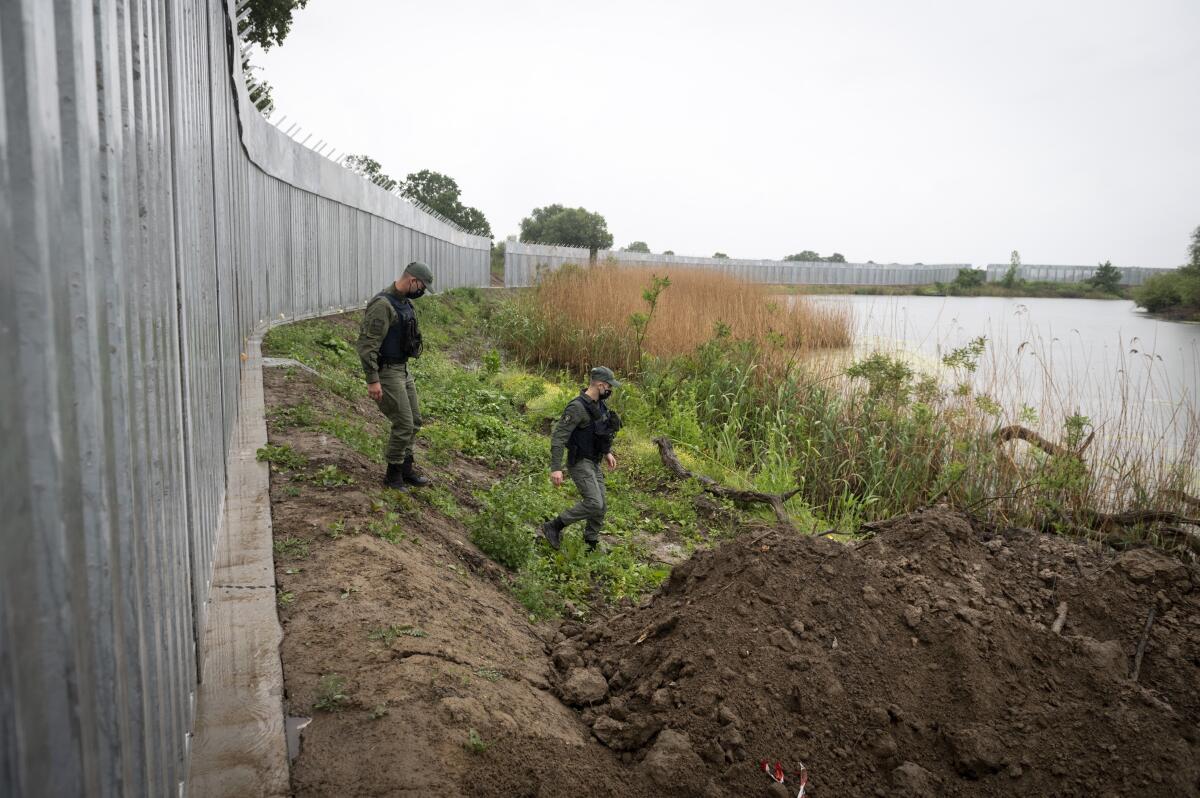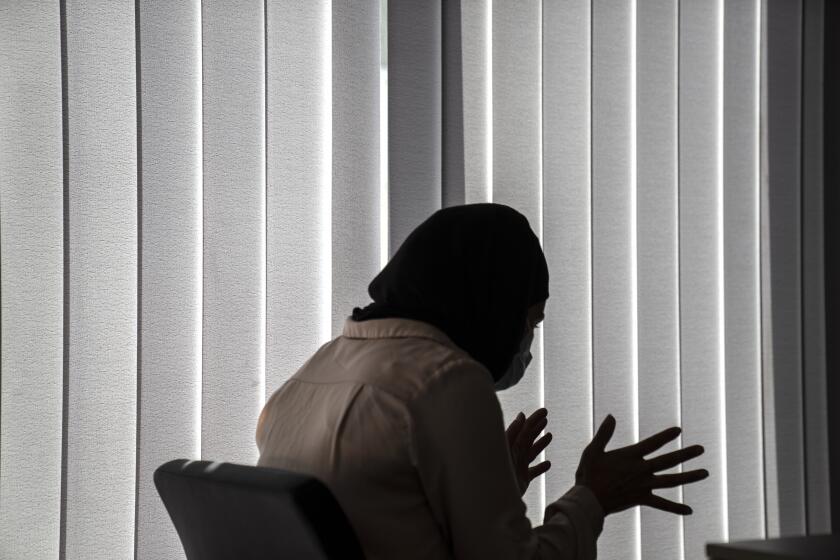Greece to extend border wall to stop migrants, wants EU help

- Share via
ATHENS — Greece says it will renew a request for European Union funds in 2022 to extend a border wall along its frontier with Turkey and promised to expand a powerful surveillance network aimed at stopping migrants from entering the country illegally.
A public order minister, Takis Theodorikakos, told a parliamentary committee that Greece expects some countries bordering the EU to continue to exploit migration to exert political pressure on member states, citing the recent crisis in Belarus on its border with Poland and other EU members.
“We have every reason to expect that these kinds of threats will continue,” he said during Friday’s parliamentary briefing, made public Monday.
Greece’s center-right government has toughened the country’s migration policy and recently completed a 16-mile extension of a steel border wall, which now spans 24 miles.
“We believe the security on our own borders is linked to the security of the EU,” Theodorikakos said, adding that border walls and fences are normally funded by national governments.
A control center for processing data from newly built border surveillance towers equipped with long-range cameras and sensors is due to begin operating in early 2022, he said. The artificial-intelligence-driven system flags the most serious migration incidents to border officers.
A Palestinian woman and her children were granted asylum after reaching Greece in a dinghy. But the 28 others they were with didn’t even get to apply.
“This automated system gives us many operational advantages and helps us monitor the entire border region,” the minister said.
The wall and detection network helped prevent more than 143,000 illegal crossing attempts on the Greek-Turkish land border over eight months through October — a 45% increase from a year earlier, he said.
The government denies allegations by human rights and migrant advocacy groups that the border interceptions include illegal summary deportations known as pushbacks.
More to Read
Sign up for Essential California
The most important California stories and recommendations in your inbox every morning.
You may occasionally receive promotional content from the Los Angeles Times.














